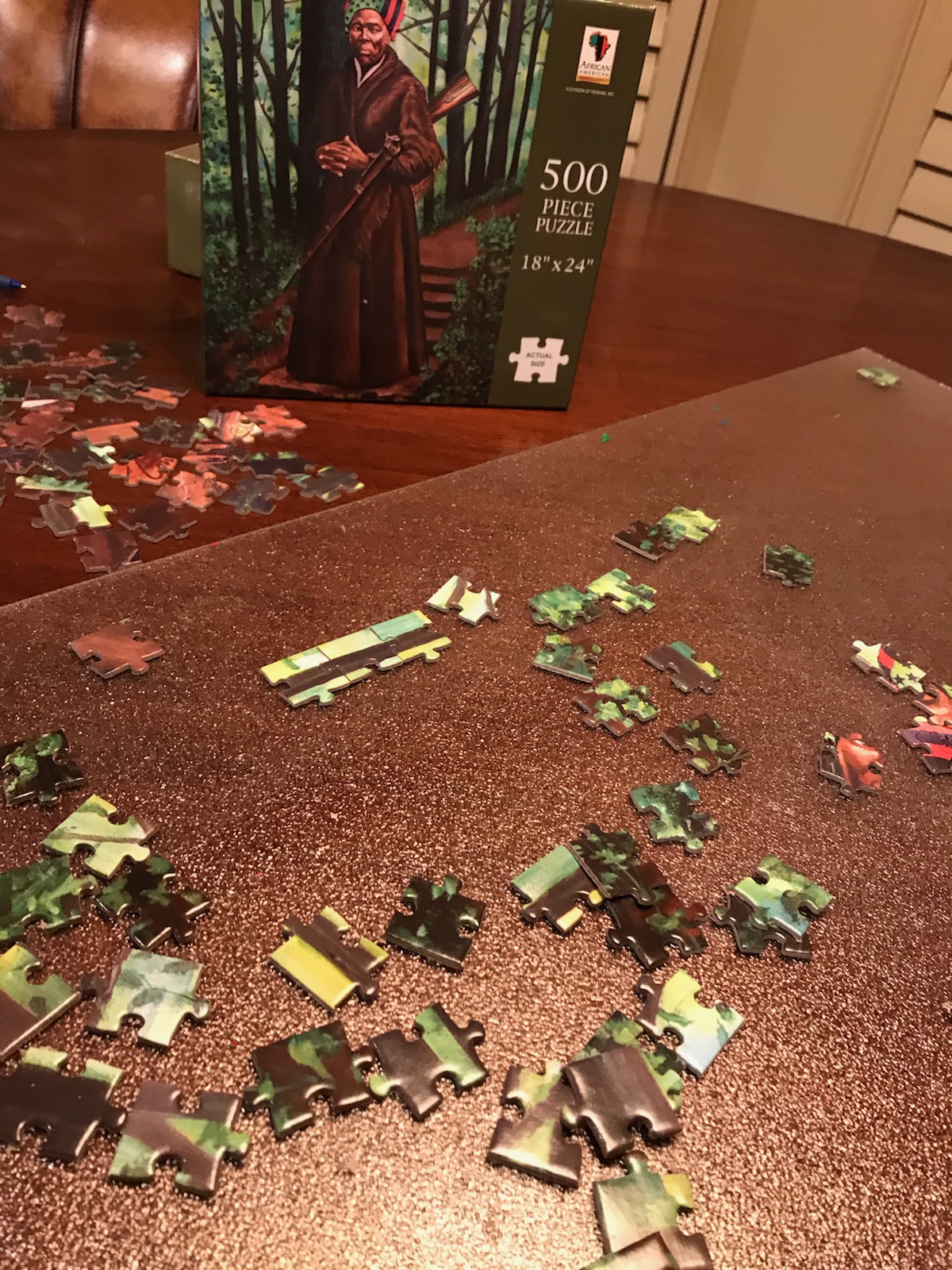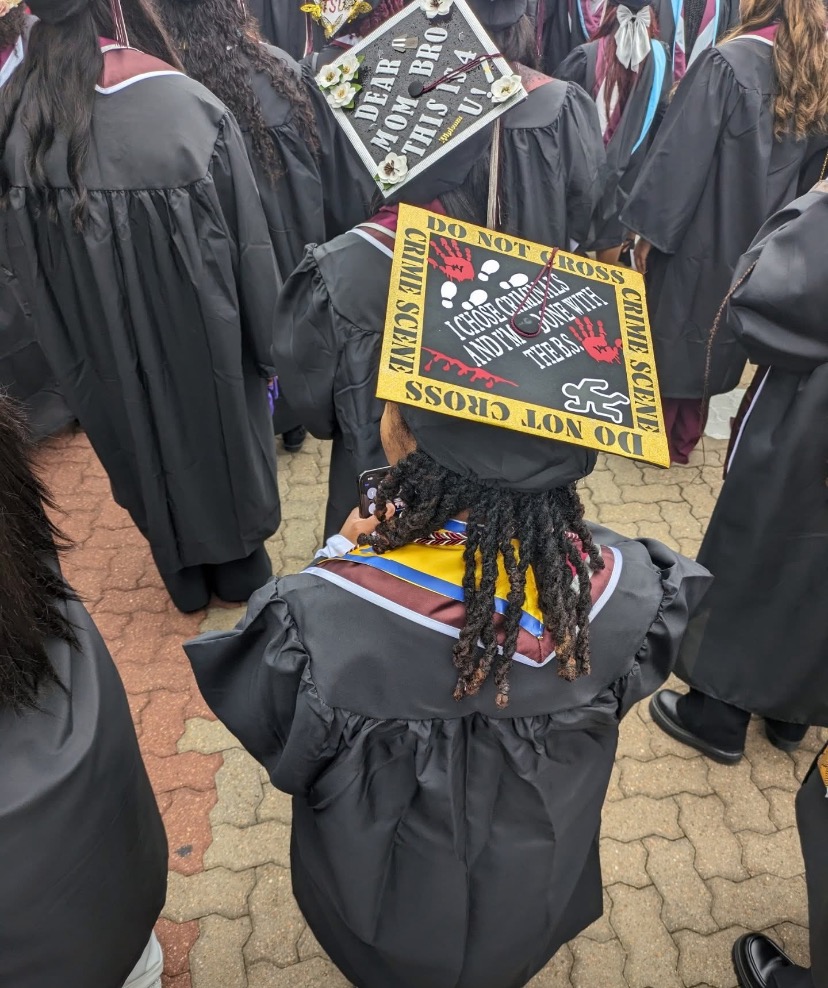Now that the CDC has given Americans who are fully
vaccinated the go-ahead to resume most activities without masks or social
distancing, those who discovered jigsaw puzzles during the pandemic wonder if
that means the pastime, too, goes back on the shelf.
Gabby Jacobs discovered a knack for jigsaw puzzles during
quarantine, earning her stripes on a 500-piece Harriet Tubman tribute.
“The puzzle was no easy feat,” Jacobs said. “I mean, risking
your life to lead dozens of the enslaved from plantations to freedom is far
more challenging, but the puzzle did, indeed, have me stumped.”
The 30-year-old nonprofit professional gathered around the
table with her family on New Year’s Eve to enjoy each other and pay homage to
Tubman.
“The challenge wasn’t the fact that the puzzle was 500
pieces – the issue was the colors. All the brown and green pieces seemed
never-ending. At one point, I actively searched for the end to the puzzle
underneath the dining table and only found, well, more puzzle pieces,” she
recalled with a smile.
Tubman’s garment in the puzzle matched her skin tone, making
it a study in shades of brown. And over the past few years, African Americans
are looking for images of themselves on puzzles, leading to a new niche market
for puzzle makers.
Matthew Goins, who is African American started his online
company in 2018, Puzzle Huddle, when he and his wife were unable to find
puzzles showing Black children for their three little ones. According to the company’s website, “Matthew began by
printing images from the internet and hand-cutting puzzles at home with a pair
of scissors. Eventually he found commercial printers to manufacture puzzles
with images he commissioned from different artists.” Goins and Puzzle Huddle
have been featured on NPR and in Black
Enterprise.
Toy industry experts said the pandemic caused a worldwide
shortage of jigsaw puzzles. Goins was already in business, but the added demand
for puzzles specific to African American culture presented others with an
opportunity. A sister-brother team, Erica Chambers and William Jones, in Dallas
started their puzzle company in their garage during the coronavirus. The two
had grown up putting together puzzles and decided the industry lacked African
American representation and named their new business “Puzzles
of Color.”
“It’s all about that representation. You don’t feel like an other,”
Chambers told KENS-TV. “You feel like you are a part of the world you live in.”
“Five-hundred to a 1,000 pieces at a time,” quipped Jones.
For Jacobs who will return to in-work person in the coming
months, she will do so with a new hobby.
She explained, “African American-centric puzzles evoke a
great deal of emotion while sharing an important piece of a major story with
those who are willing to journey through it. Although the best part of any
puzzle is the end, working on them is a feel-good experience with my family
that’ll remain unmatched.”
And, don’t forget the snacks, she advises. They, too, are an
important piece of the family entertainment puzzle.


 Black History5 years ago
Black History5 years ago
 Black History6 years ago
Black History6 years ago
 Black History4 years ago
Black History4 years ago
 Black History5 years ago
Black History5 years ago
 Black History5 years ago
Black History5 years ago
 Black History6 years ago
Black History6 years ago
 Black History9 years ago
Black History9 years ago
 Black History5 years ago
Black History5 years ago

















